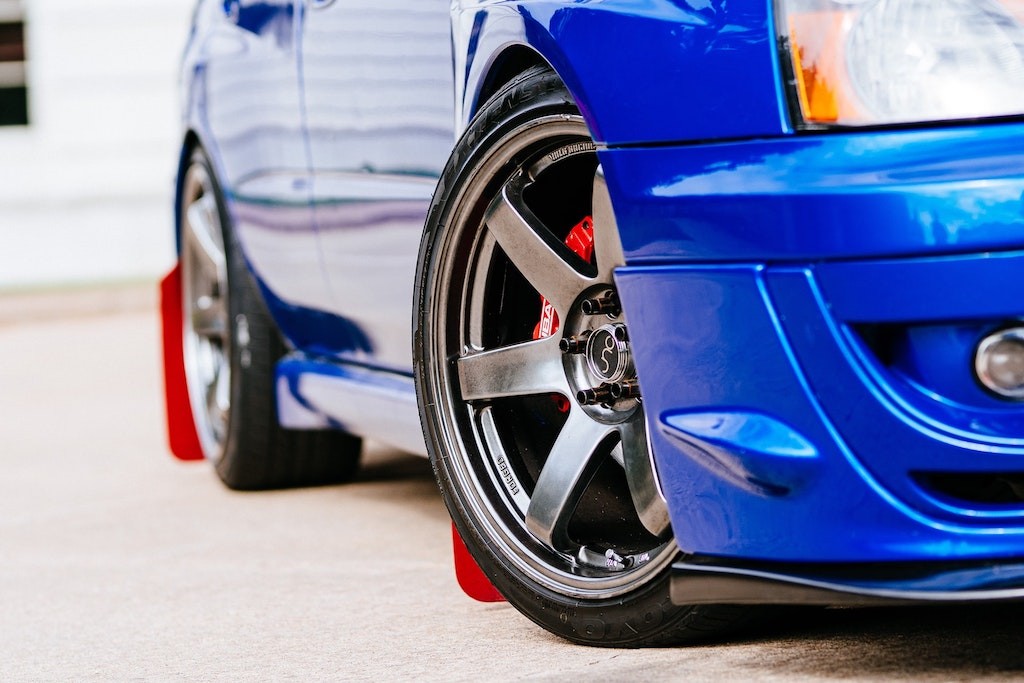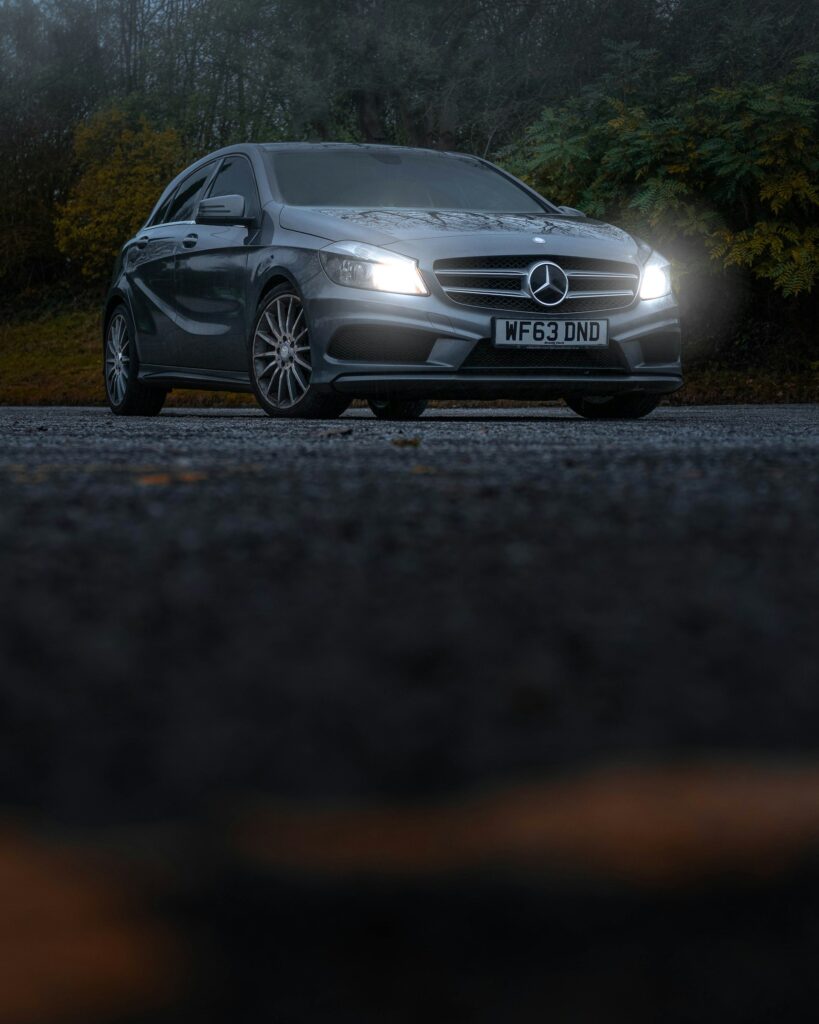For car fanatics with an eye on both performance and aesthetics (hey you, eyes back on the road!), a set of alloy wheels can be a tempting investment.
On the flip side, if you’ve landed on this page wondering what an alloy wheel is, it’s simply a car wheel made from an alloy like magnesium and aluminium.
Today, alloy wheels are fitted as standard on many new cars – especially premium models, but for older models or for those looking to give their car a makeover and raise its appearance, performance and value in the process, these wheels can be a prudent addition.
Should you be thinking about getting alloy wheels, then here are 8 considerations you should mull over before making that purchase.
All About Safety Over Style
If you’re in the market for a set of alloy wheels, there’s an absolutely huge variety of makes, models, sizes and shapes to choose from.
Alloy wheels can be decorative; designed in swirls and lace-like patterns. They can also be found in metallic shades, pastel hues, and even bright primary colours; basically, whatever you need to match the paintwork of the vehicle.
As such, buying the right wheels for your vehicle can be tricky, but rather than prioritising aesthetics, you should consider safety as the number one priority before purchase. Right now, there are a huge amount of replica alloys on the market masquerading as BMW, Audi, Mercedes and the like. Often, these are of poor quality and could cause safety issues when driving.
To identify a legitimate alloy wheel, look for the part number, rim size and offset number, which should all be visible on the back of the spokes. You should, of course, also buy from a reputable dealer, rather than from an online marketplace where it’s difficult to trace the wheel’s source.
Read: What are some of the best ways to ‘pimp your ride’ on a budget?

Rust & Corrosion
Driving in the UK means driving on roads that are exposed to salt at some point during the year, due to the salt-laden grit that local councils spread to stave off the threat of icy roads in Winter. But if you live by the sea, or frequently use coastal roads, then your exposure to salt is increased to year round, and possibly even daily.
Steel wheels do not get on well with salt, and are prone to rusting, discolouring and even pitting and weakening over time.
Alloy wheels, on the other hand, are made from either magnesium alloy or aluminium alloy: neither of which react to salt. Good news, indeed, but some corrosion may still occur that you should be aware of.
Technically speaking, alloy wheels don’t truly rust. While they can corrode, this process differs from rusting. Rather than developing the brownish-orange color associated with rust, alloy wheels exhibit white stains when deteriorating. Most factory alloy wheels come polished with a protective finish specifically designed to prevent this corrosion.
Occasionally, corrosion breaches the protective finish and damages the alloy surface. Don’t worry though – it’s possible to eliminate rust from alloy wheels and restore their original appearance.
Food for thought, indeed.


Lighten Your Load
There’s a reason why alloy wheels first made an appearance on the race track and it’s not because of their flashy good looks. It’s because alloy wheels mean that they can accelerate faster and respond more quickly, too.
Alloy wheels are lighter than steel wheels of the same size, which means your car is more responsive and has better handling – this is because there is less weight that the suspension needs to cope with.
Indeed, the weight of a car is determined by the combined weight of all its components. This overall weight influences the vehicle’s acceleration, braking, and steering capabilities. Reducing the total weight can enhance the car’s performance and handling.
This is because there is less mass to move and control, which means that less energy is needed to do so. This results in greater fuel efficiency, but potentially, reduced comfort driving.
So, although you might find better acceleration, you might be sacrificing a little comfort in the process; sometimes the relative light weight of alloys can lead to some vehicular vibrations, particularly when taking corners.
The Importance Of Reputable Suppliers
When shopping for alloy wheels, it’s crucial to consider where you’re purchasing from. Reputable suppliers, including specialist centres like the Tyre Safety Centre, often offer additional benefits beyond just the product itself. These can include expert advice on proper fitment of TSC alloy wheels, information about compatibility with your specific vehicle model, and sometimes even post-purchase support.
Purchasing from established wheel specialists means you’re more likely to receive wheels that are genuinely suitable for your vehicle’s specifications. These suppliers typically have relationships with trusted manufacturers and can verify the quality and authenticity of their products. While you might pay a premium compared to unknown online sellers, the additional peace of mind regarding safety and compatibility is often worth considering. When investing in alloy wheels, taking the time to research and select a reputable supplier can save you from potential issues down the road.

Better Fuel Economy, Potentially
In theory, alloy wheels give your better fuel economy. The lighter frame puts less strain on the suspension of your car. In other words, lighter wheels meant the car will be pulling less weight which allows for faster suspension and, in turn, reducing fuel consumptions
Alloy wheels are especially suitable if you’re living in a city – they also allow better brake and tyre cooling. That said, you have to consider the purchase cost and the environmental impact and fuel used to manufacture alloy wheels; it’s not all plain sailing, after all.
The Potential For Improved Brake Performance
Alloy wheels are known for their better heat dissipation properties compared to steel wheels, which can lead to improved brake performance. However, this is a consideration rather than a guaranteed benefit. The effectiveness of heat dissipation can vary based on the specific design and material of the alloy wheel.
While better cooling can reduce the risk of brake fade and maintain optimal braking performance, it’s important to remember that this advantage is more noticeable in high-performance vehicles or during spirited driving. For everyday driving, the difference might be less significant. Additionally, improved cooling can extend the lifespan of brake components, but this should be balanced against the initial cost of the alloy wheels and any potential maintenance they might require.


Maintenance & Upkeep
Another consideration when opting for alloy wheels is the maintenance and upkeep they require. While such wheels are generally more resistant to rust compared to steel wheels, they are not entirely maintenance-free. Alloy wheels can still corrode, especially if the protective finish is damaged. This can result in white stains and a less appealing appearance over time. Regular cleaning and occasional polishing are necessary to keep them looking their best.
Additionally, alloy wheels are more prone to cosmetic damage such as scratches and curb rash, which can be costly to repair. It’s important to factor in the time and effort required for maintenance, as well as potential repair costs, when deciding whether alloy wheels are the right choice for your vehicle.
Not A One Size Fits All Approach
Of course, you can opt for custom made alloy wheels – however, we don’t all have the pay package of celebrities. There are so many parameters to consider when choosing the right tyres for your car, and things can get a bit confusing; you can use tyre metrics, vehicle specification, tyre size and registration number. Alternatively, you can put your trust in the professionals to make those decisions for you.
The Bottom Line
Alloy wheels can be a brilliant upgrade for your vehicle, offering aesthetic improvements alongside practical benefits like reduced weight, better heat dissipation, and improved handling. However, as we’ve discussed, it’s vital to prioritise safety over style, consider ongoing maintenance requirements, and ensure you’re purchasing properly certified products such as TSC allow wheels. While the initial investment might be higher than standard steel wheels, the potential performance benefits and enhanced appearance can make alloys a worthwhile consideration for many motorists. Just remember to do your homework, buy from reputable sources, and select wheels that are appropriate for your specific vehicle and driving needs.





